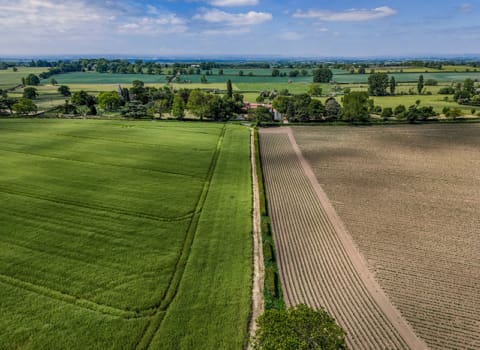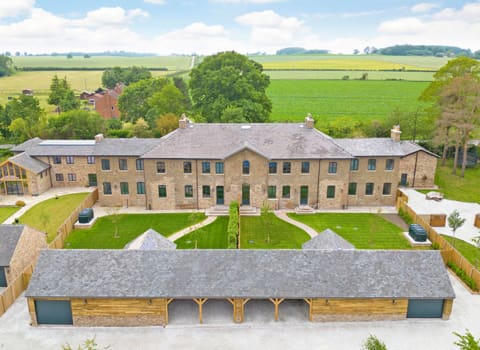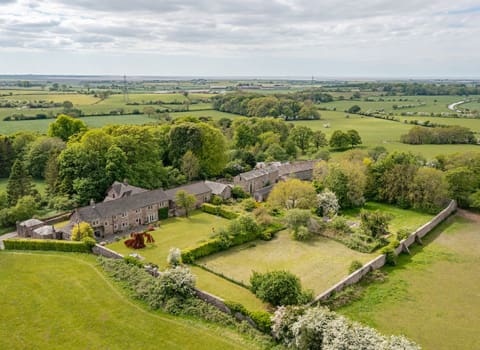Contact our offices
Main office
COLBURN
5 & 6 BAILEY COURT
COLBURN BUSINESS PARK
RICHMOND
NORTH YORKSHIRE
DL9 4QL
Estate Agency Offices are located in
BARNARD CASTLE, BOROUGHBRIDGE & RICHMOND
Residential Management Team
Our Offices
- Alnwick
01665 568310
Email Officealnwick@gscgrays.co.uk - Barnard Castle
01833 637000
Email Officebarnardcastle@gscgrays.co.uk - Boroughbridge
01423 590500
Email Officeboroughbridge@gscgrays.co.uk - Chester-Le-Street
0191 3039540
Email Officechester-le-street@gscgrays.co.uk - Colburn
01748 897630
Email Officecolburn@gscgrays.co.uk - Driffield
01377 337180
Email Officedriffield@gscgrays.co.uk - Hamsterley
01388 487000
Email Officehamsterley@gscgrays.co.uk - Hexham
01434 611565
Email Officehexham@gscgrays.co.uk - Kirkby Lonsdale
01524 880320
Email Officekirkbylonsdale@gscgrays.co.uk - Penrith
01768 597005
Email Officepenrith@gscgrays.co.uk

Five questions first time buyers must ask
For first time buyers, stepping on to the property ladder can be daunting and overwhelming. During the process it’s easy to forget to ask important questions or even to know which questions to ask. Here at GSC Grays we’ve got you covered. Our experts have put together five questions every first time buyer must ask!
What can I afford when buying a house?
Understanding what you can realistically afford goes beyond checking what the lowest monthly payment on a mortgage could be via a popular property app. You have to take into consideration any other regular payments you make, car finance, household bills subscriptions to cable TV services. Plus, there are immediate costs such as professional services fees including conveyancing solicitor fees, stamp duty, valuation and survey fees and mortgage arrangement fees. Finally, there’s the cost of actually moving home – hiring a removal van/team hire, furniture, fixtures and fittings and re-decorating costs.
Added up the figure can be surprising and leave you thinking should I buy a house now? But don’t panic, here’s what to do:
Sit down with a mortgage advisor before you even start looking at properties, they will help first time buyers determine what you can afford right now based on your current savings, salary and any existing debts that need to be considered. Mortgage advisors will help you figure out what you can afford realistically right now and whether it is worth saving for a little longer to get a better mortgage to be able to invest in the ideal home.
A lot of mortgage advisors will offer a free initial appointment to go through these details with you, and we highly recommend doing this to make sure you fully understand what you can afford in the long term.
Where should I buy a house?
There is an old property adage which says ‘buy the worst house in the best street’. For first time buyers, making the decision on where to make that big purchase can lead to many sleepless nights. There’s a lot to consider to make sure you’re getting the best home for your budget; will selling a property in the area be easy in the future? Are there any up and coming areas where heavy investment is currently being made but prices at the moment are low? Or should you buy in an area away from your current location?
Although it’s important to understand what you can afford and hope to potentially gain from your investment in future, you also need to consider what you value, your lifestyle and if the property will meet your ongoing needs. For example, do you want to live near your family? Do you have children or plan to in the future, are there schools nearby and is the property big enough to house a growing family? Do the travel links suit your commuting requirements? Ultimately, choosing where to buy you need to consider the financial practicalities but also if you will be happy in your new home in the long-term.
What should I check when viewing a house?
When walking into a potential home as a first-time buyer it’s important to go in with a critical and sweeping eye. There are the big problems to look out for including damp patches and staining on the walls and ceilings, cracks above doors and windows, and musty smells when you open cupboards. But some of the less obvious issues include signs of insect infestation and rot. Whilst a detailed survey should pick anything up, it’s a good idea to look at skirting boards, and door frames for signs of woodworm and look out for any particularly bouncy floors which may indicate the need to replace joists.
Another big issue people completely overlook is the attic and roof areas, problems up top can radiate down and cause further damage and cost if they are not fixed early. Woodwork rotting, holes and cracks in the roof, leaking gutters and even animals in the roof – check for droppings and look at the condition of the guttering from outside the property. If you can see plants, they have probably not been cleaned in a while and could be blocked, leading to leaks and dampness in the attic or upstairs rooms.
Check doors and windows are all in working order and locks are up to current insurance standards. You’ll also need to consider room sizes and the furniture, if there is any, there at the moment. If you have a king-sized bed and the room looks tight with a double, is it going to work?
Ask questions about the electrics such as have they been replaced, is it the original wiring, have any notices been filed after previous electrical work? And are there enough sockets in the rooms – older properties can have one single or double socket in the whole room, putting more in is an additional cost you need to prepare for.
Similarly check for any plumbing issues, such as whether there are any leaks from sinks, check water pressure through flushing toilets, checking taps and showers – also check if they are heating up. At this point it would be a good idea to check radiators for leaks and ask the seller to turn the boiler on so you can check there are no issues with heating.
Utilities are costly to repair and upgrade – if they’re not at the standard they should be for the age and condition of the property this could be either a big red flag or negotiating power if, as a first time buyer, you’re keen to take on a refurbishment project.
Why is the owner selling?
Finding out why the owner is selling can save you time and money for a couple of reasons. If the owner is not really sure they want to sell and are just finding out what they could get, they may not be a serious vendor and the sale could be at greater risk of falling through at a later stage. And if they are really keen for a quick sale, you get additional negotiating power, especially as a first time buyer who doesn’t have to consider selling their own property too which can slow down the process.
Additionally, take an interest in why they’re selling, try to establish the reason for a sale – if it’s a family home then the owner may be more inclined to sell to someone who views the property as their future family home.
What’s included in the sale?
This is an important question and one the first-time buyers often forget to ask. Yet, when renting, we always check what’s included any furniture/white goods/fixtures and fittings? Is the shed included? Is there parking included? The same questions apply when buying a home. Will the white goods be left, or will you have to buy these? If the vendor isn’t leaving white goods, there’s often scope to ask if these can be negotiated into the sale. Similarly, if they are not leaving anything behind, you may be able to negotiate the price down. Check what is included, what you’d like to be included, and make sure an inventory is created to avoid any arguments or confusion upon sale.
These five questions are a good starting point for any first-time buyer, so if you’re thinking of buying a home keep a note of these or bookmark the page to refer back to when the time comes. We recommend finding a good advisor who will be able to direct you to many more questions you need to think about too.
If you’re looking to move and would like to discuss options in the area, contact a member of our agency teams.









